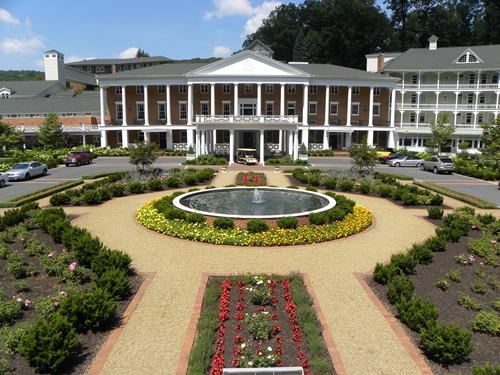
Historic Tax Credits
Utilizing the federal historic rehabilitation tax credit is one of the most important and effective tools of preservation real estate planning, development, and financing. The federal credit only applies to properties considered for commercial use and not homeowners.

Historic tax credits are vital to preservation development like the restoration of the historic Omni Bedford Springs Hotel
The federal government offers two Rehabilitation Investment Tax Credits: a 20% credit for the certified rehabilitation of certified historic structures and a 10% credit for the rehabilitation of non-historic (meaning not listed on the National Register of Historic Places or a contributing structure in a National Register district), non-residential buildings built before 1936.
The National Park Service administers these programs in partnership with the Internal Revenue Service and the State Historic Preservation Offices. To qualify for the 20% credit, the project must be substantial and the building income producing, a “certified historic structure” and held for at least five years.
In 2000, Congress also passed the Community Renewal Tax Relief Act, creating a New Market Tax Credit Program to encourage private investments in low-income communities. The program is based on a competitive application process by which community reinvestment entities certified by the Department of Treasury’s Community Development Financial Institution Fund compete for $2.5 billion in federal tax credit applications.
How Do I Apply for a Historic Tax Credit?
Before you can claim a tax credit, your building must be designated a “certified historic structure,” which means that it must either be listed individually in the National Register of Historic Places or be a contributing building in a registered historic district. To find out if your building is listed on the National Register, contact the National Park Service.
You should also consult your accountant or tax advisor to make sure that this federal tax credit is beneficial to you. Certain income and other restrictions may have a bearing on whether an owner is able to use the credit. IRS administers the Department of the Treasury’s involvement with the Federal Historic Preservation Tax Incentives Program.
For more information and consultations specific to your building, contact our office for guidance at 412-471-5808.
